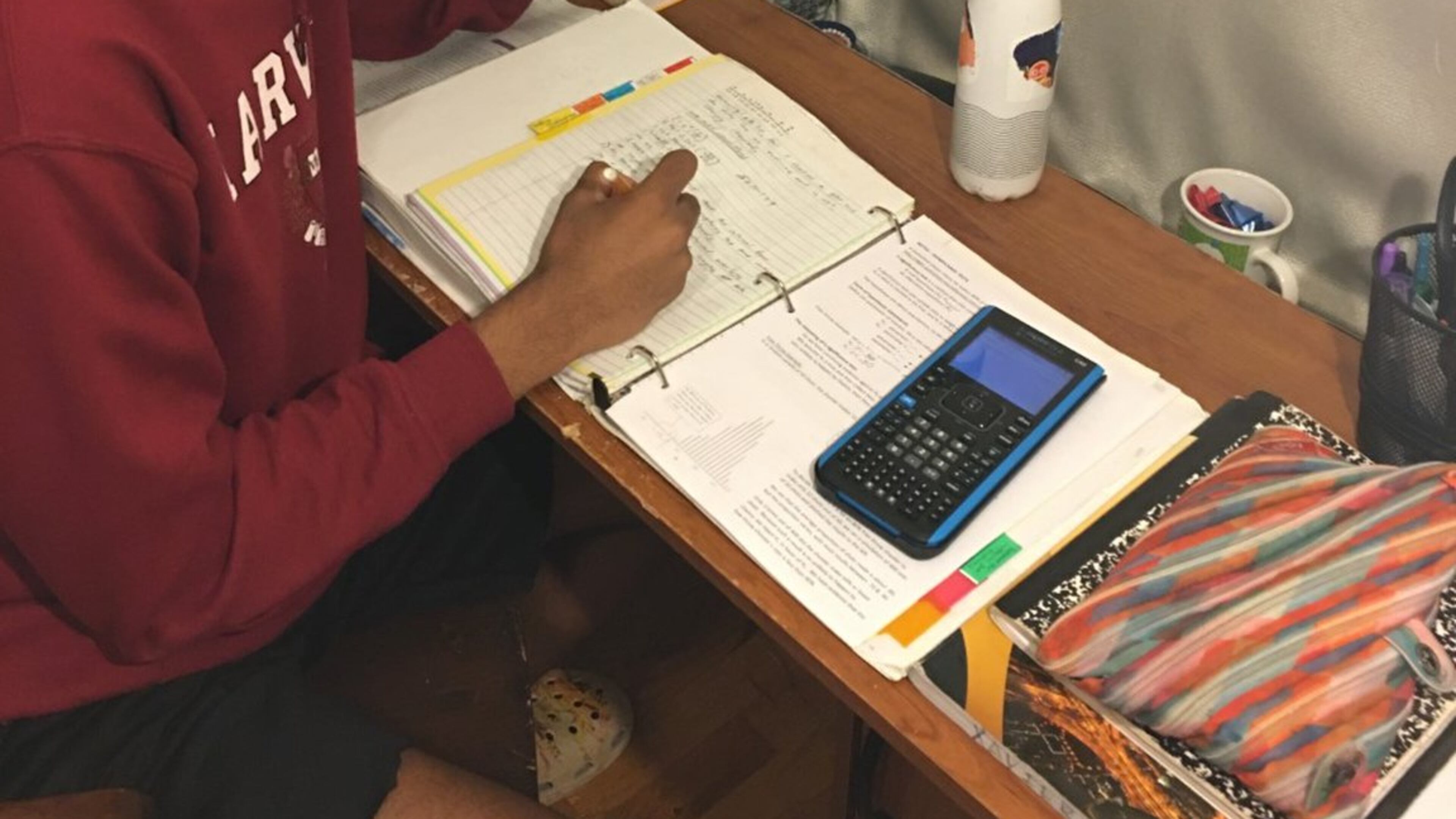Pandemic changes Advanced Placement tests this year

Xavier Peterson had a strategic plan for getting the most out of his high school education. A 17-year-old junior at DeKalb County’s Cedar Grove High School, he wanted classes with rigor, but also ones that would help him become an orthopedic surgeon.
“My dream school is NYU,” he said. “Like other high quality schools, it’s not easy to get in and once you’re there, you have to be used to tough classes.”
He’s taking four Advanced Placement classes this semester and like students across the country, the newly announced changes to the way the final tests will be administered have him concerned.
Last week, the College Board, the organization that develops and administers standardized tests and curriculums to promote college-readiness and the college admissions process, released specifics on how the tests for high school classes would be different in the wake of the COVID-19 crisis.
Related story: Metro students devastated after COVID-19 closed schools
Related story: Schools, parents adapt to quick shift to class work online
With shelter-in-place and distance-learning mandates, there are no monitored tests. Most exams will have one or two free-response, or essay questions, and each question will be timed separately, according to a press release from the College Board. Students will need to write and submit their responses within the allotted time for each question.
Tests for each course will be given at the exact same time, regardless of location.
Unlike previous years where students sweated out hours of multiple=choice and essay questions, this spring exams in most subjects will last 45 minutes.
Perhaps the biggest change is that there will be an honor system of sorts because students will be able to complete their exams at home, using computers, smartphones or tablets. The College Board will even allow them to write responses by hand and take a photo of the results to submit for scoring.
Peterson took AP World History last year and found that the long-form questions were his strong suit.
“I’m much better at rhetorical analysis, short answer and other types of essay questions,” he said.
But since the school district only pays for two of the AP tests, he put his money and most of his time behind the ones for which he was most confident that he’d get the best score.
“I’m working toward 5s and confident about 4s,” he said.
AP exams are scored on a scale of 1 to 5. In general, colleges will usually give credit for a score of 3 or higher, although more competitive colleges may only give credit for a 4 or higher, depending on the exam.
So he signed up for U.S. History, Environmental Science and Statistics. When he found out recently that all of the multiple-choice questions for English Language and Composition were going to be removed, he mentally kicked himself. He’d taken the AP test last year for World History and now understands what works best for him.
“I know I would’ve done well, but it’s too late to sign up for it now.”
Erin Minley, a sophomore at Atlanta’s Maynard Jackson High has different issues.
She’s scheduled to take AP Biology, AP Language and Composition and AP World History, but worries that the most recent instruction won’t be part of the tests.
“Not all teachers are tailoring the lessons to what we’ll be tested on,” she said. “Of course we need to learn all of this, but the goal is to get the best grade possible.”
Like Peterson, she’s interested in a medical career and is looking at historically black colleges and study-abroad programs.
“What happens right now can have a major impact on the rest of my life,” she said.
That’s why administrators are looking for ways to continue to support teachers and students in navigating the guidance and information released by the College Board.
“When we return from spring break, staff will continue to seek guidance on from the College Board on items including testing security and impact on college credit,” said Clifford R. Jones, chief academic officer for Fulton County Schools.
One thing that’s worrying students the most is the support from teachers. If school lets out before the exams, will they still have someone to help them study and prepare?
“Yes, teachers will work with seniors after their last day on May 1 to ensure they are prepared,” said Jones. “It is important to note that the AP exams will focus on the 75% of course covered to date. Teachers and students have continued with instruction on the remaining 25% which is expected to meet college expectations. College Board is providing daily, live classes by leading AP teachers. Live sessions will be recorded. The lessons are completely optional and supplement regular classroom instruction.”
That’s a relief to both students.
More information
College Board lessons can be found at https://www.youtube.com/user/advancedplacement. The schedule of classes can be found at https://apcentral.collegeboard.org/pdf/ap-class-schedule-daily.pdf. Course specific exam information can be found at https://apcentral.collegeboard.org/about-ap/news-changes/coronavirus-update.



